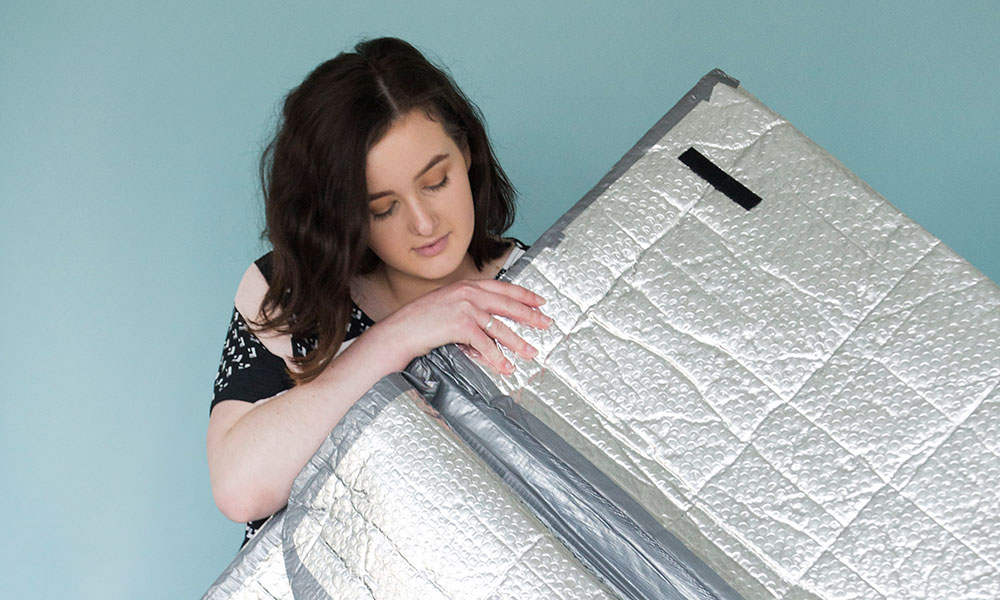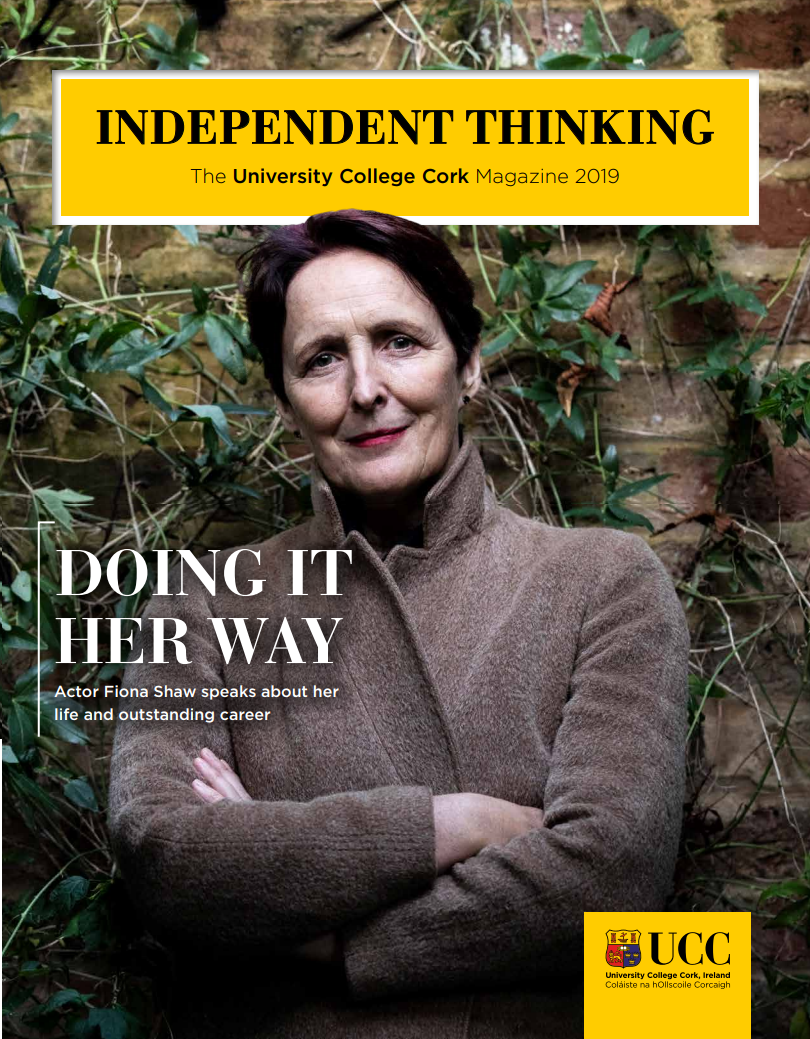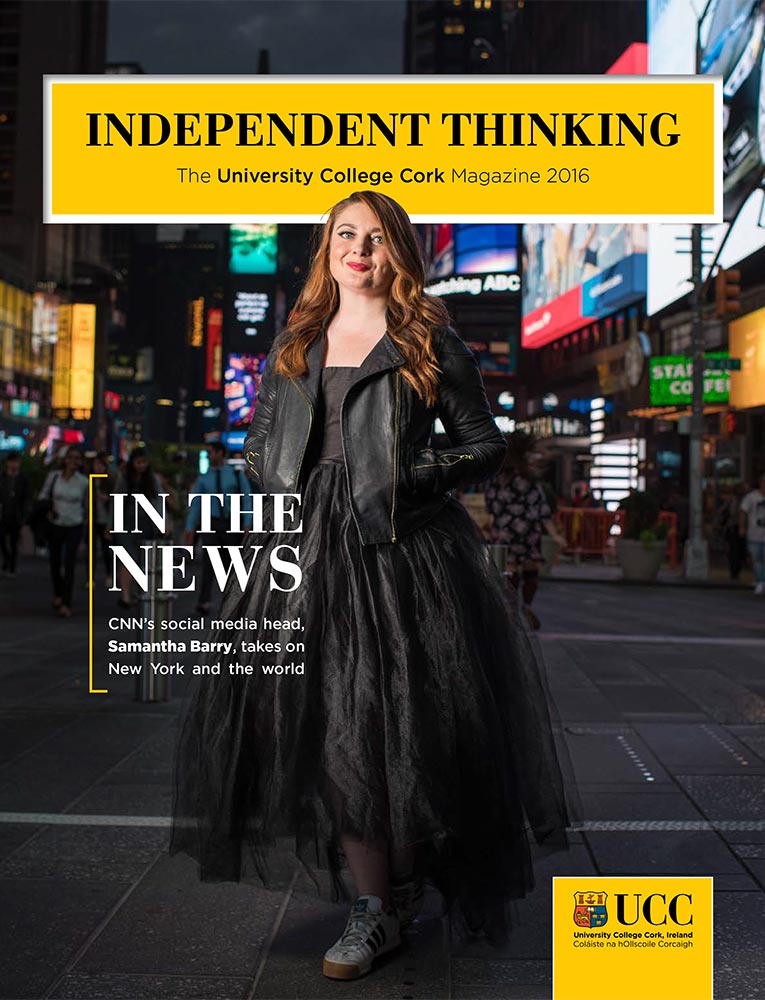Features
- Can Do, Will Do
Stefanie Preissner
- It’s not just a gut feeling
John Cryan & Ted Dinan
- Active citizen
Emily Duffy
- Leading the charge
Alan Hayes
- Gaeltacht adventures
Bliain Na Gaeilge
- Eachtraí sa Ghaeltacht
Bliain Na Gaeilge
- Don’t worry, bees happy
Fiona Edwards Murphy
- The times they are a-changin’
LGBT Staff Network
- Back to her roots
Maria Kirrane
- Shining a light
Mental Health in the Community
- Patrick’s call to nursing was no accident
Patrick Cotter
- A healthy separation, long overdue
Ivan Perry
- Woman of Steele
Susan Steele
Active citizen
Emily Duffy, inventor of the Duffily Bag, discusses tackling the homeless crisis head-on and her hopes for the future. In conversation with Jane Haynes

Myself and some of my friends decided that we were going to fundraise for a charity, and then we picked homelessness because it was coming towards winter. When I read the statistics and saw there was an estimated 5,000 people homeless in Ireland at any one point, it just blew my mind about what I thought was going on in my country - and how it was not what I thought it was, at all.
I focused my BT Young Scientist project on homelessness and, more specifically, people sleeping rough on the streets. I wanted to do things that would alleviate the problems that I knew of, and I just tried to come up with a simple solution to work around that.
Homelessness is a three-dimensional issue. There are so many underlying factors, that we haven’t even scratched the surface of what needs to be done. We need to be able to help to rehabilitate people. We need to be able to give them the support that they need, and then we need to be able to empower them to help integrate themselves into working life.
That was one of the main reasons why I loved working with the Mendicity Institute, because they provide homeless people with meals. They took on my workshop, and through that we employed up to 20 homeless people; they were also looking to provide them with free mental health services.
In the last three years, three of the initial seven homeless people I worked with have gone on to full-time employment and permanent accommodation. It’s incredible to know that what one person is doing can have effects on so many others. I think the more that I do this, and the better I become at running the business, the more positive stories I can share with the world.
It proves to people that being homeless isn’t just being on the streets, living on handouts; these people really are trying hard to be seen as humans and equals.
It’s incredible to know that what one person is doing can have effects on so many others.
For me, being a Quercus scholar, especially for Active Citizenship, shows that what I’m doing is being seen and heard. That is amazing; to be able to prove to people that, yes, what you’re doing is important and to be able to have that kind of support – to know that I don’t need to pick up another part-time job to get myself through college, so that I can devote almost all of my time to doing this. I don’t think there’s another university out there that would recognise what we’re doing in the way that Quercus has. It’s phenomenal.
I know that I want to make this global, because homelessness isn’t just a problem here – it’s a universal problem. So, it’s not just going to stop here – it’s going to continue, it’s going to keep growing, because it needs to be done.
I know that what I’m doing is a temporary solution to a long-lasting problem, but I will do other things. I have so many plans, so many ideas.
I think empathy is something that we can all find within ourselves. Empathy is something that we learn; it’s something that we can cultivate and grow, and it just takes time. It’s something that we should be more focused on, because the more empathetic we are as people, we can make better life decisions – not just for ourselves, but for other people, and that just improves quality of life for people all round.
To find out more about the Quercus Scholarships, visit www.ucc.ie/en/quercus.



